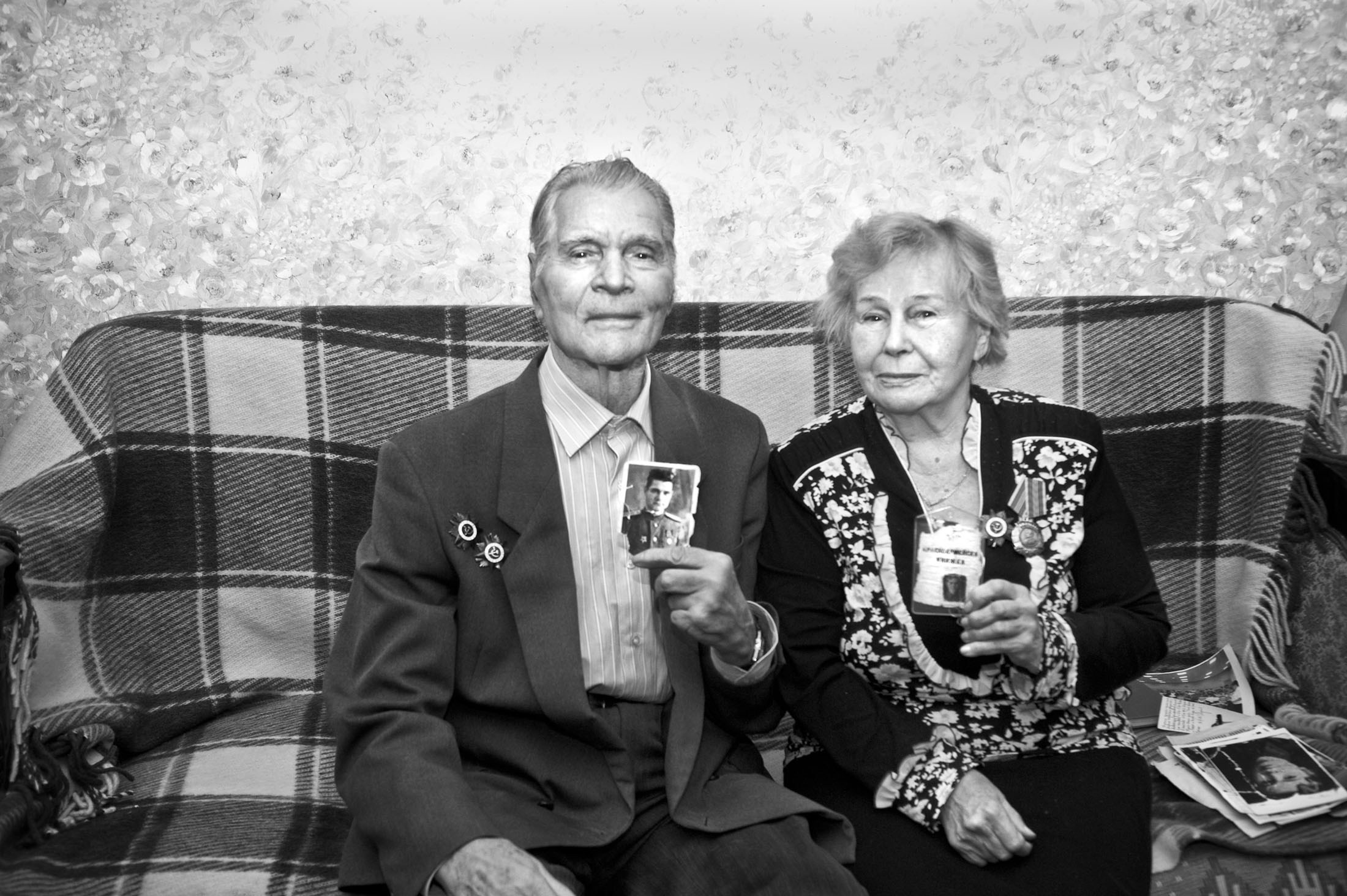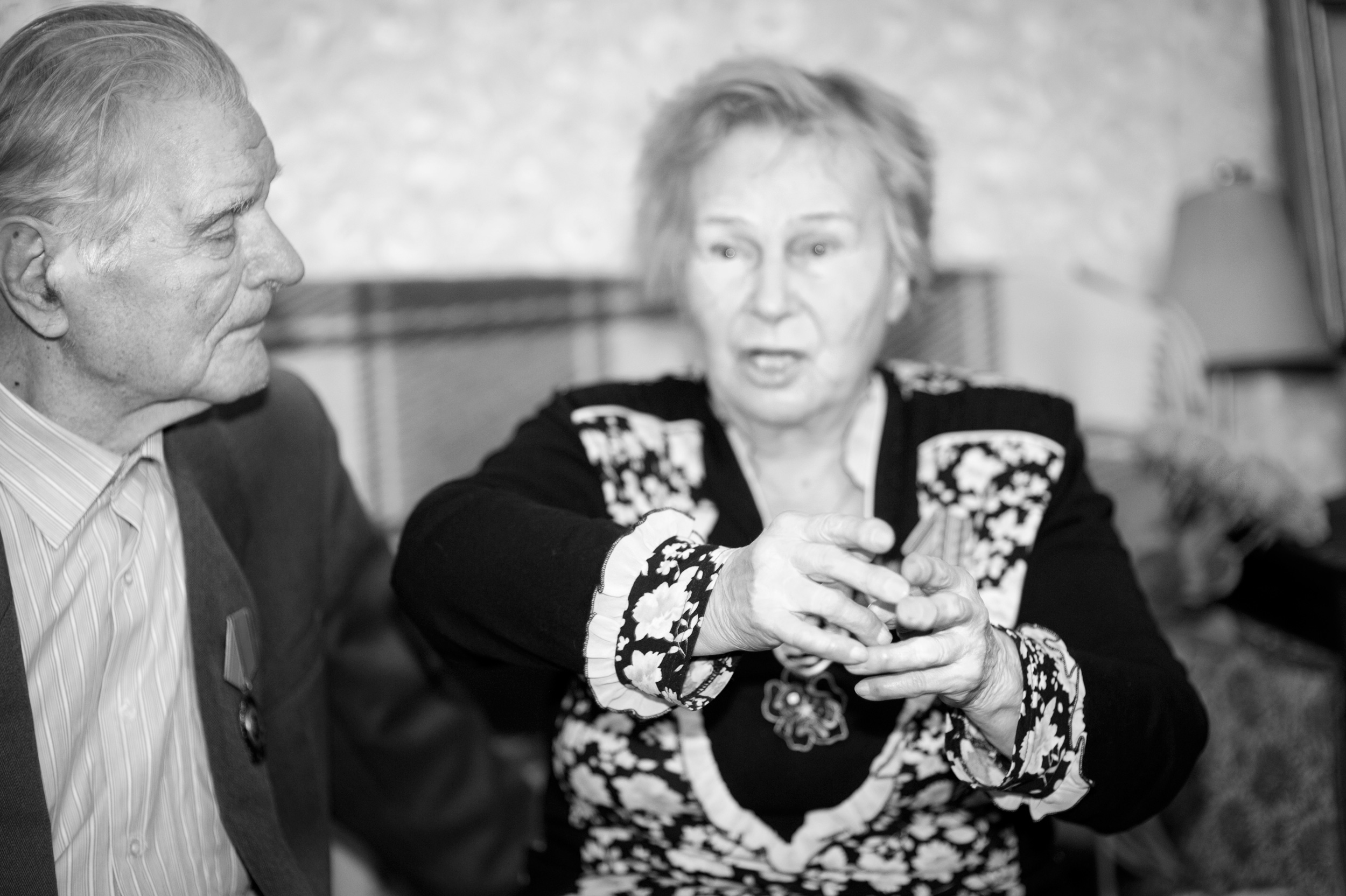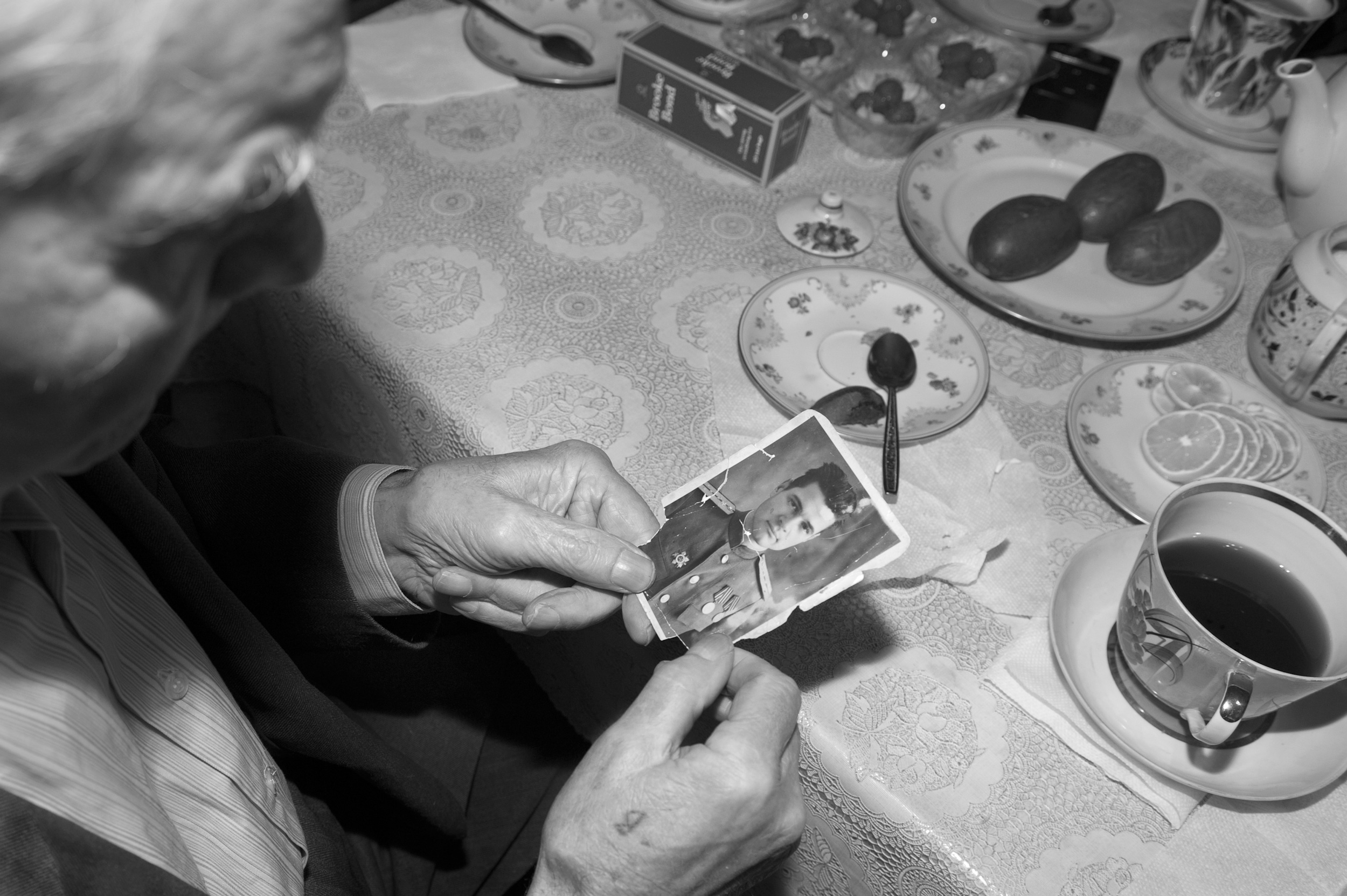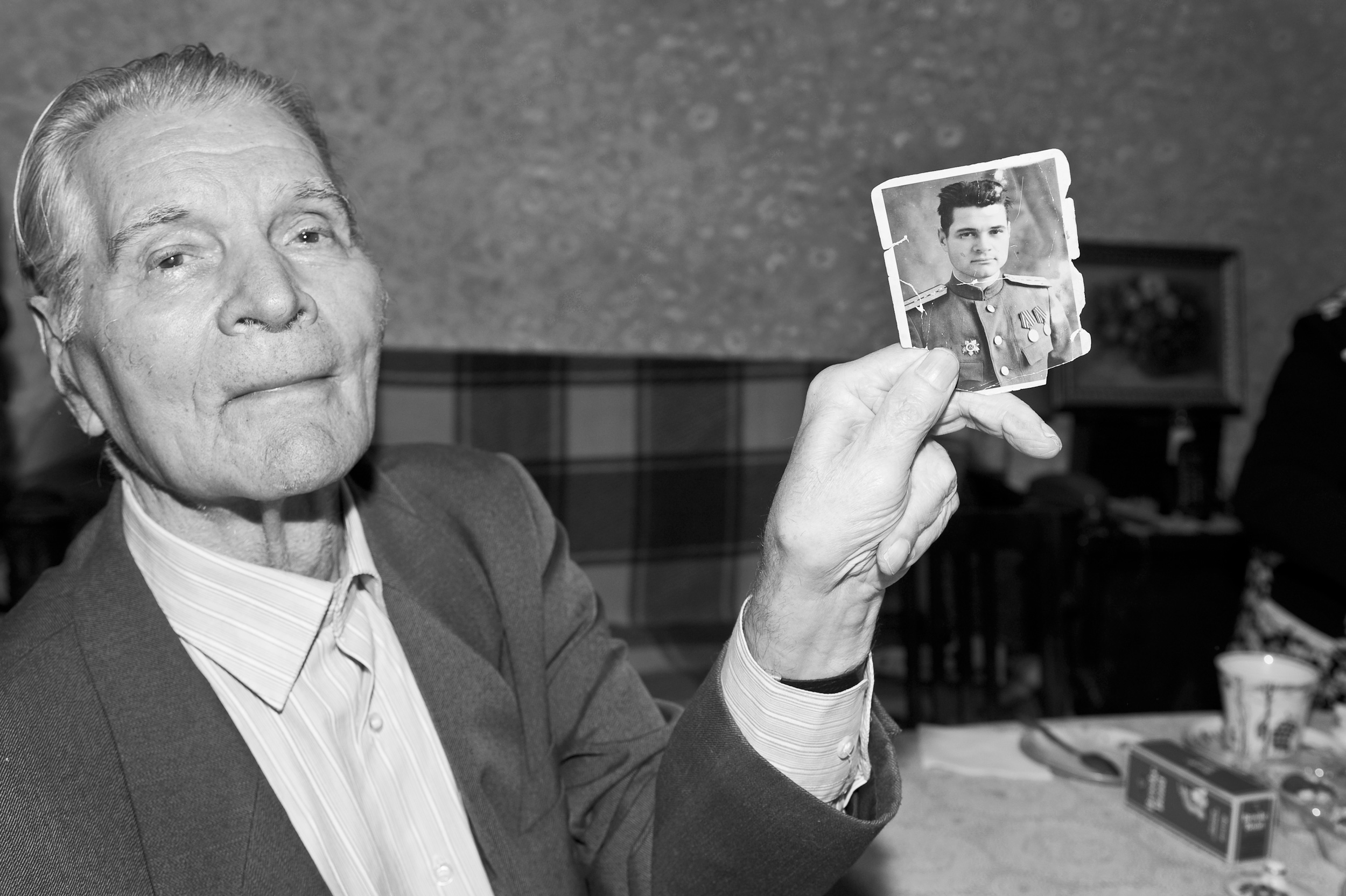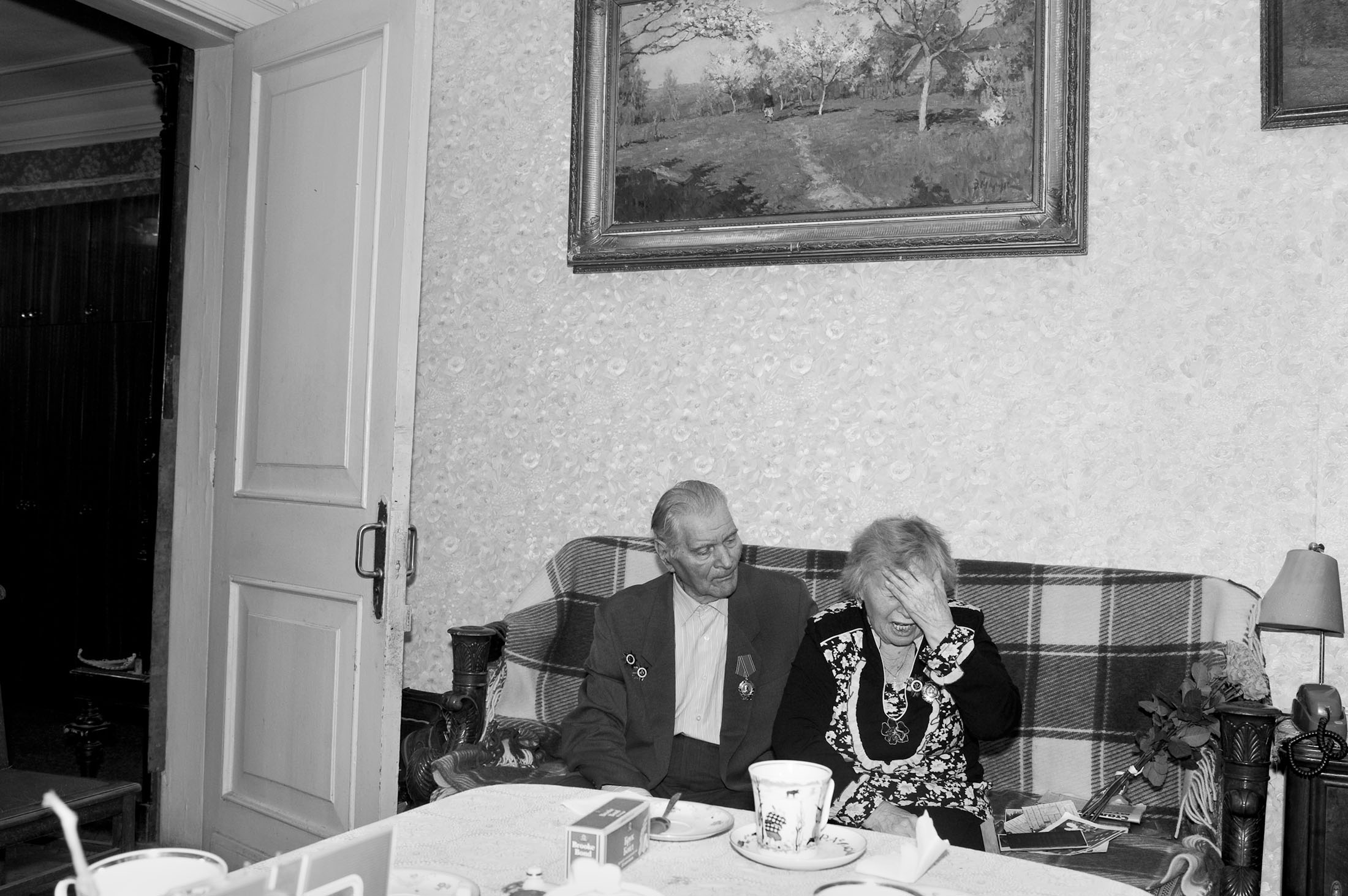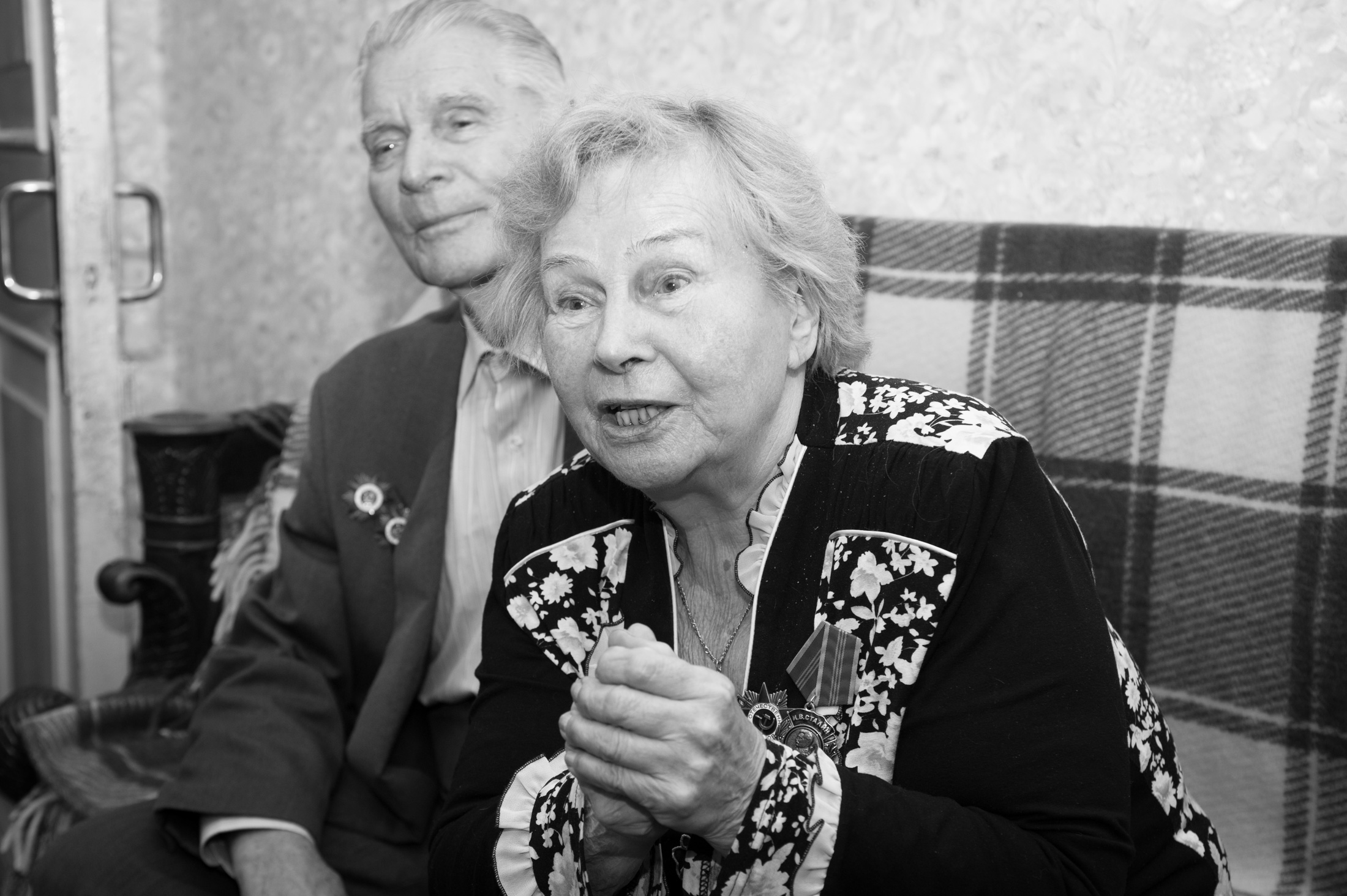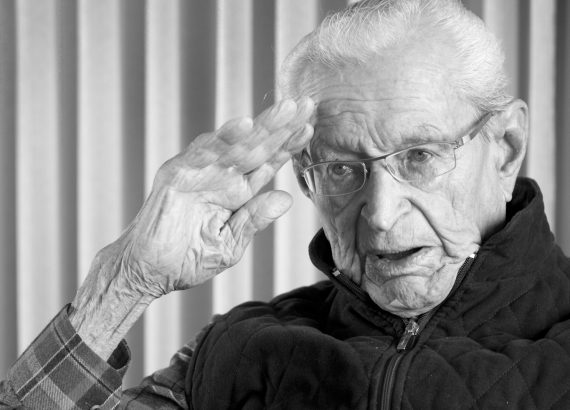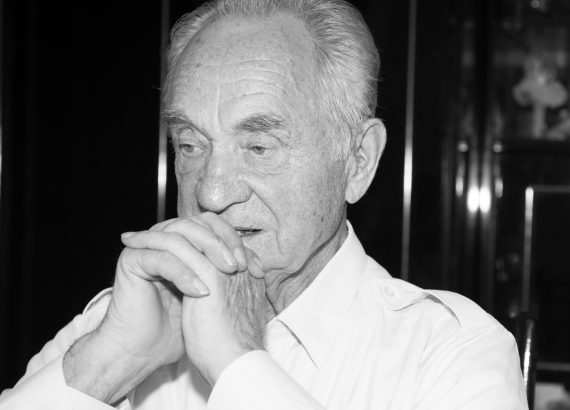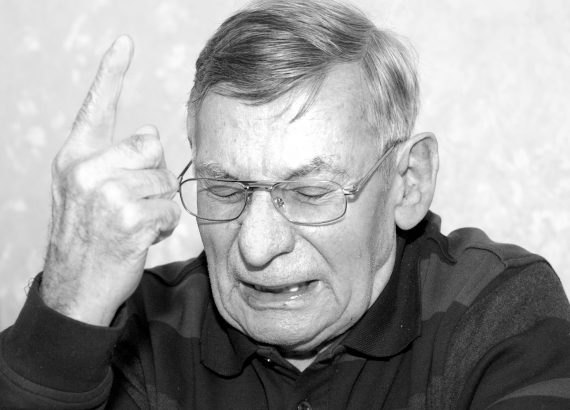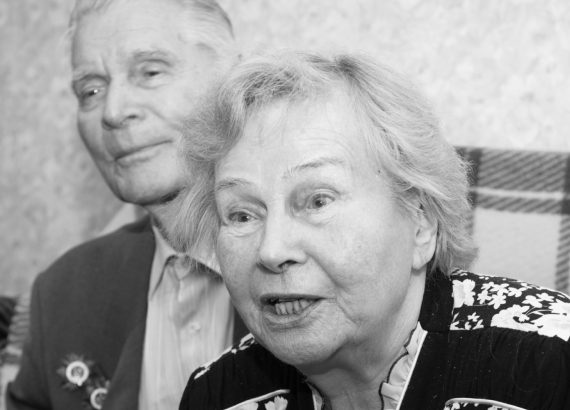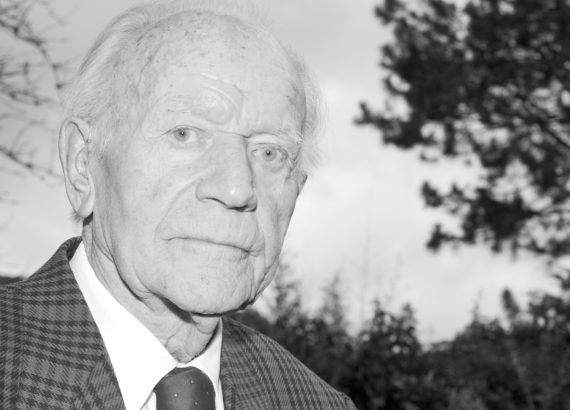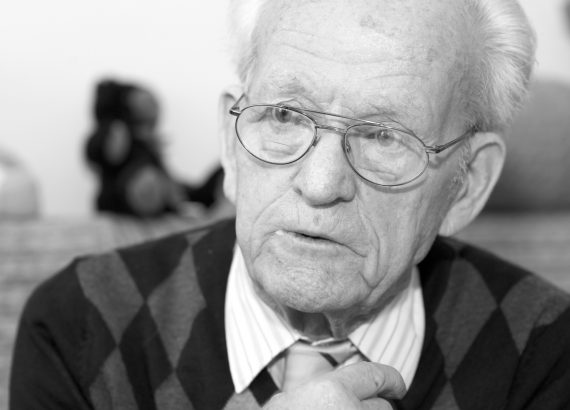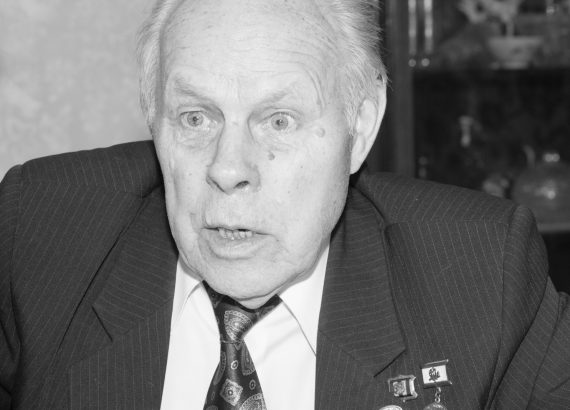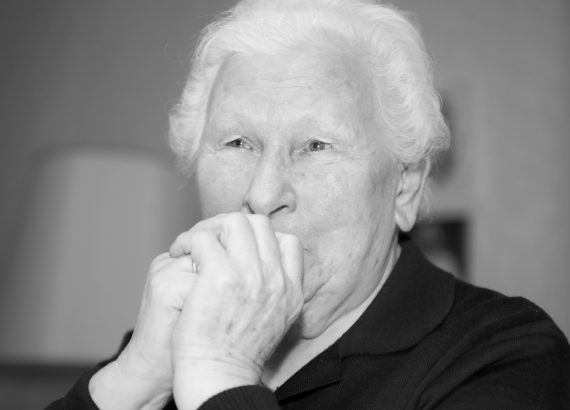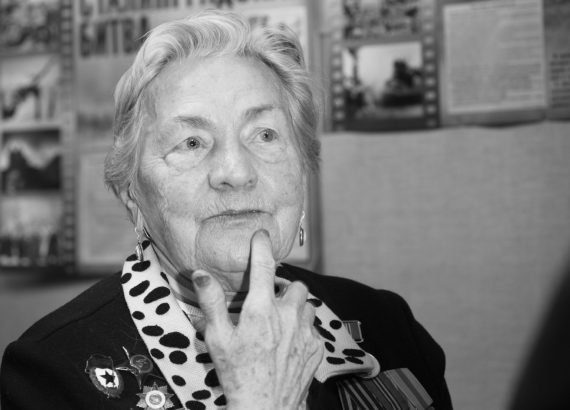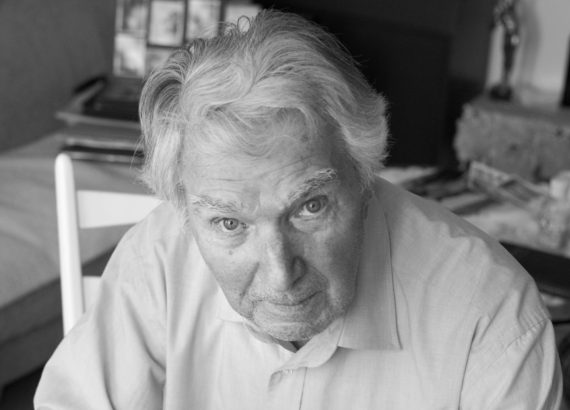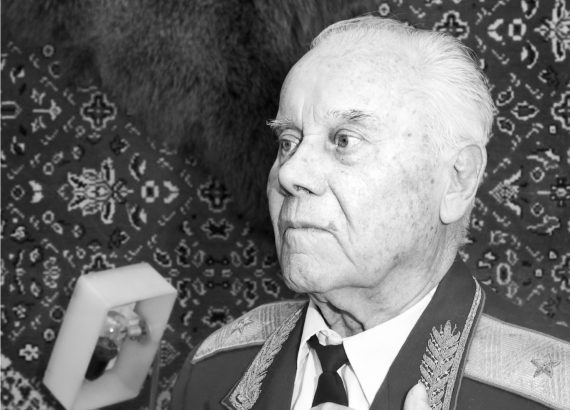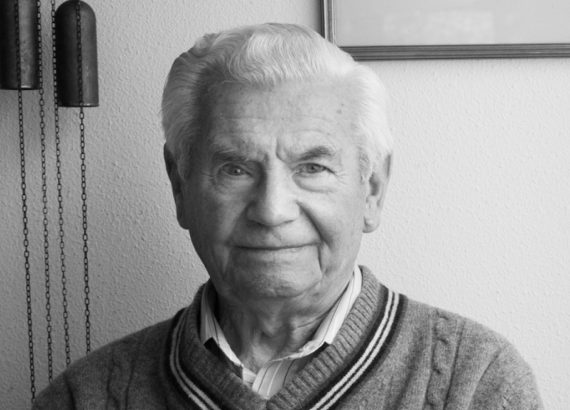And who had to carry out the executions?
Well, he had no such cases.
No such cases.
Did the Special Department people do that?
Yes, the Special Department; there were indeed such “golubchiks” [Russian: “little pigeons,” a term that Aleksandr Filippovich uses ironically] … (turning to Maria Georgievna) Well?
Why me? You try to remember!
(Perking up) You are beautiful! That’s why I fell for you!
(Also perking up) Head over heels he did!
How about vodka? Did people have it?
Everyone was receiving 100 grams.
And when did people drink: before or after a fight?
After it wouldn’t be of much use…
(interrupting) Whenever they distributed it. There was no prescribed time.
Sure, when they distributed, though people tried to enter a fight a little bit “lit.”
Though sometimes after. It depended on the commander. Our starshina [staff sergeant] would say: “Don’t even ask for it now. After the fight!” And they even wouldn’t always feed us before a fight, even if the food had been delivered.
That’s just sheer disregard for the soldier.
I disagree! The only ones who were protesting were the Asians (they didn’t like to fight on an empty stomach). And what if there is a stomach wound? Then it’s certain death. That was the point.
Did you personally hear Order 227?
I remember it well. The 28th [The order was issued on July 28, 1942]. When they read it we were on the right bank of the Don. Everyone had to stand at attention. The political officer was the one reading it. I even remember it was not our first one, commander Pesochin who had fought with Zhukov somewhere in the Far East. … So that one was pacing up and down, looking everyone in the eye.
He stopped right in front of me, nose to nose: hadn’t see me before, since I worked at the radio station. “Who is that citizen?” Though that didn’t faze me: I’d seen the war, so he wasn’t scary to me. … So this head of Political Department read to all of us standing at attention the order, “Not a Step Back.” They would even add (I don’t know if that actually was in the order): “And if you’re wounded, fall with your head toward the West,” which is to say, to show that you were attacking. And no one objected or complained about the order. Not a soul. Just the opposite. The soldiers were saying: “There’d be more order.” And they were right.
And what did you think yourself?
I personally thought that we would no more retreat. Draw the line. Fight to the last. To the last soldier… And we would all repeat: “Even a single soldier on the battlefield, if he is a Soviet one, can put up a fight.” It boosted our morale. It unified us. One thing that surprised me was that there were no longer extra rations for commanders: all ate together and divided everything among all. That meant something: we were one family…
And after the Order we thought: that’s the right way. There was no other way! Or else the whole people would perish or become enslaved. That’s what the command was saying. Fight to the last. And everyone understood and agreed with it. I never heard anyone complain or object: and not only because they were afraid. No one was afraid any more anyway: neither officers nor soldiers… And there was no curtness or unfriendliness. Everyone understood everyone else. And all smoked together and passed the cigarettes after making a drag. All were one. And even if there was a scoundrel or thief there, he’d soon straighten out. All were good, all were great. All were heroes. Sure enough, there’d be an occasional surprise. Once a strange soldier who saw me was surprised to see a girl, but I told him there was nothing to be surprised about. And another one in his forties told me that I deserved a spanking and being sent home. Though when he learned that I was working at the radio station he said: “You’re a champ, though I feel sorry for you all the same.” And I told him: “There is no reason to feel sorry for me.” You know: death is not half bad when the world is watching [wording of a Russian proverb]. Now if you were alone, with your back to the wall, maybe that would be scary, but when there are people around you… And there were laughs and jokes too, some friendly ribbing… If a man is seen running, there is sure to be a joke that he had chickened out – ha-ha-ha! There was a soldier who was afraid and others were dropping little pebbles on his helmet. But soon enough he got over his fear and even was laughing at himself. And we laughed and reminisced. And all was taken in good part, wasn’t it? And they treated girls nice too.
Once the porridge I brought was gritty with sand: couldn’t be helped since the field kitchen had been bombed. So I said, “Lets strain it, we are bound to salvage something!” Isn’t that right? I said: “It’s good that it’s my tin bowl that is with a hole through-and-through and not me! And the soldiers said, “Bully for you, champ.” They all liked me for my cheerfulness.
There was love too. There was a girl named Masha who, I think, served in our division’s recon. Her husband was a company commander. He was killed. And she was assigned to the headquarters. We had retreated and he was left behind. So she asked her commander to grant her leave and was gone for a week-and-a-half. Then she appeared – all gaunt and exhausted… She had found his body and had hauled it across the frontline. How had she managed? Must have hauled him during the night: that’s love for you… Somebody had told her where the fight had taken place. She had slipped in there, recovered him, dragged him out of there and gave him a burial.
Love is love, what can I tell you… Though Stalingrad would seem the unlikeliest place for that. If Chuikov was ever up to any fooling around, I don’t think that Stalingrad was the place. He made it to Berlin after all and in Stalingrad he must have had his hands too full for that business. Sure, he may have liked someone, but hardly more than that.

